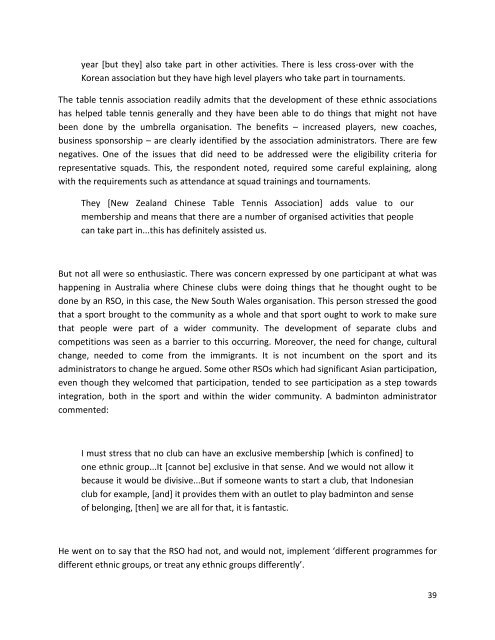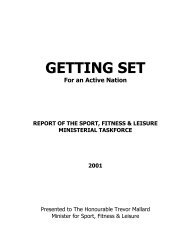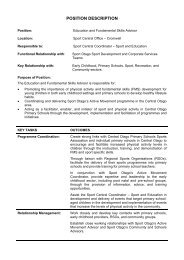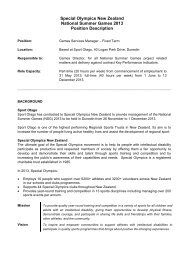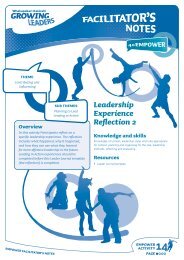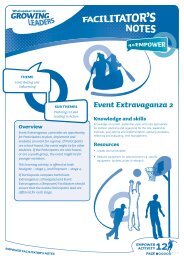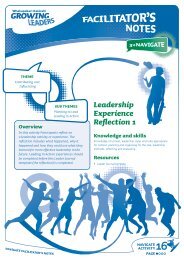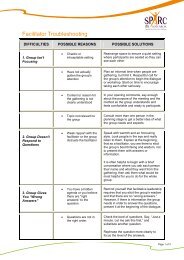sport and cultural diversity - Sport New Zealand
sport and cultural diversity - Sport New Zealand
sport and cultural diversity - Sport New Zealand
You also want an ePaper? Increase the reach of your titles
YUMPU automatically turns print PDFs into web optimized ePapers that Google loves.
year [but they] also take part in other activities. There is less cross-over with the<br />
Korean association but they have high level players who take part in tournaments.<br />
The table tennis association readily admits that the development of these ethnic associations<br />
has helped table tennis generally <strong>and</strong> they have been able to do things that might not have<br />
been done by the umbrella organisation. The benefits – increased players, new coaches,<br />
business sponsorship – are clearly identified by the association administrators. There are few<br />
negatives. One of the issues that did need to be addressed were the eligibility criteria for<br />
representative squads. This, the respondent noted, required some careful explaining, along<br />
with the requirements such as attendance at squad trainings <strong>and</strong> tournaments.<br />
They [<strong>New</strong> Zeal<strong>and</strong> Chinese Table Tennis Association] adds value to our<br />
membership <strong>and</strong> means that there are a number of organised activities that people<br />
can take part in...this has definitely assisted us.<br />
But not all were so enthusiastic. There was concern expressed by one participant at what was<br />
happening in Australia where Chinese clubs were doing things that he thought ought to be<br />
done by an RSO, in this case, the <strong>New</strong> South Wales organisation. This person stressed the good<br />
that a <strong>sport</strong> brought to the community as a whole <strong>and</strong> that <strong>sport</strong> ought to work to make sure<br />
that people were part of a wider community. The development of separate clubs <strong>and</strong><br />
competitions was seen as a barrier to this occurring. Moreover, the need for change, <strong>cultural</strong><br />
change, needed to come from the immigrants. It is not incumbent on the <strong>sport</strong> <strong>and</strong> its<br />
administrators to change he argued. Some other RSOs which had significant Asian participation,<br />
even though they welcomed that participation, tended to see participation as a step towards<br />
integration, both in the <strong>sport</strong> <strong>and</strong> within the wider community. A badminton administrator<br />
commented:<br />
I must stress that no club can have an exclusive membership [which is confined] to<br />
one ethnic group...It [cannot be] exclusive in that sense. And we would not allow it<br />
because it would be divisive...But if someone wants to start a club, that Indonesian<br />
club for example, [<strong>and</strong>] it provides them with an outlet to play badminton <strong>and</strong> sense<br />
of belonging, [then] we are all for that, it is fantastic.<br />
He went on to say that the RSO had not, <strong>and</strong> would not, implement ‘different programmes for<br />
different ethnic groups, or treat any ethnic groups differently’.<br />
39


